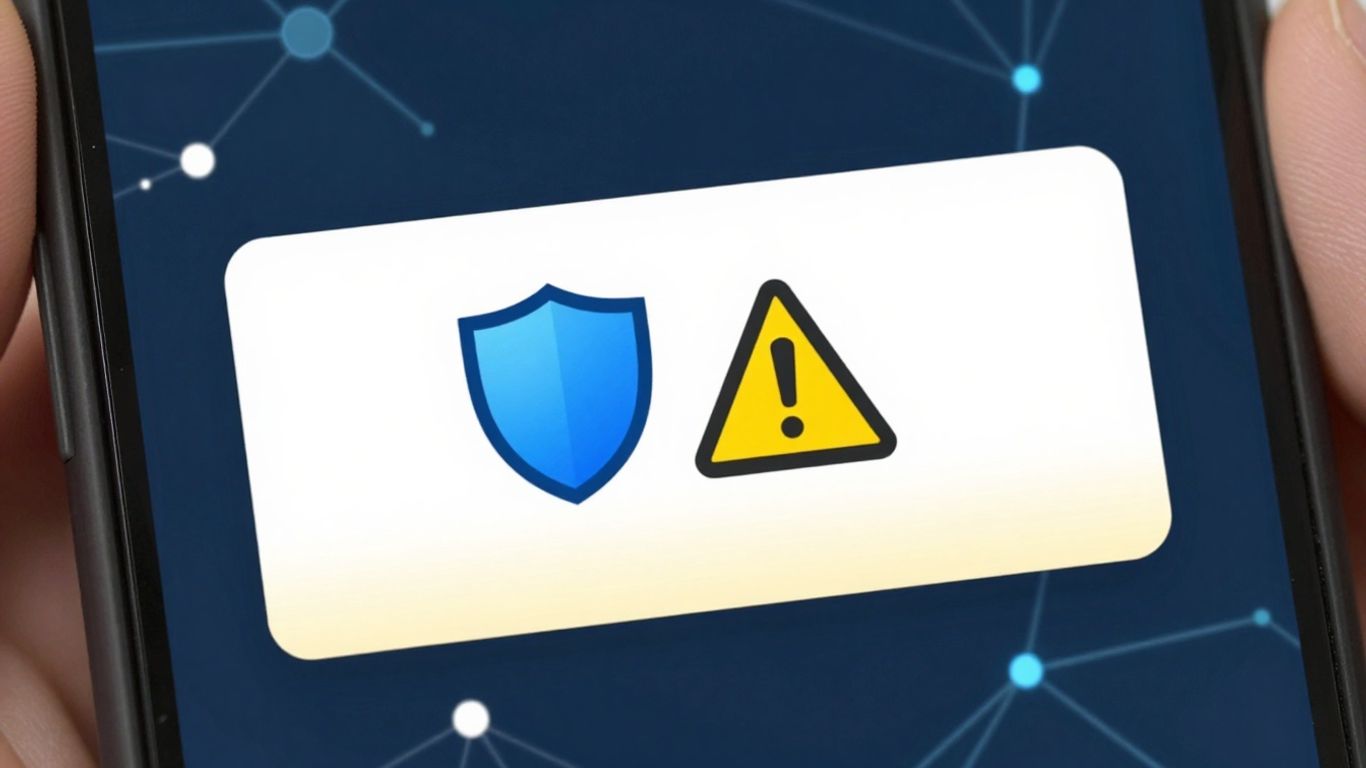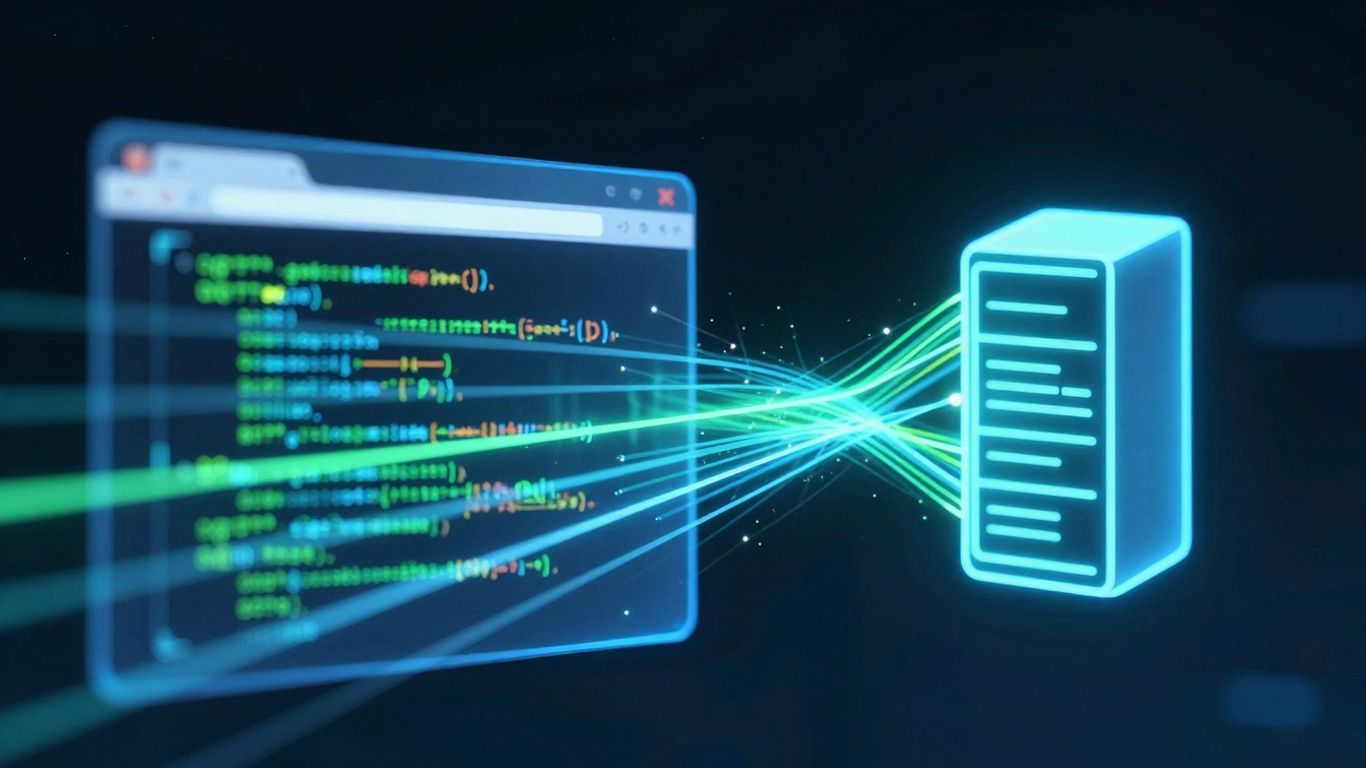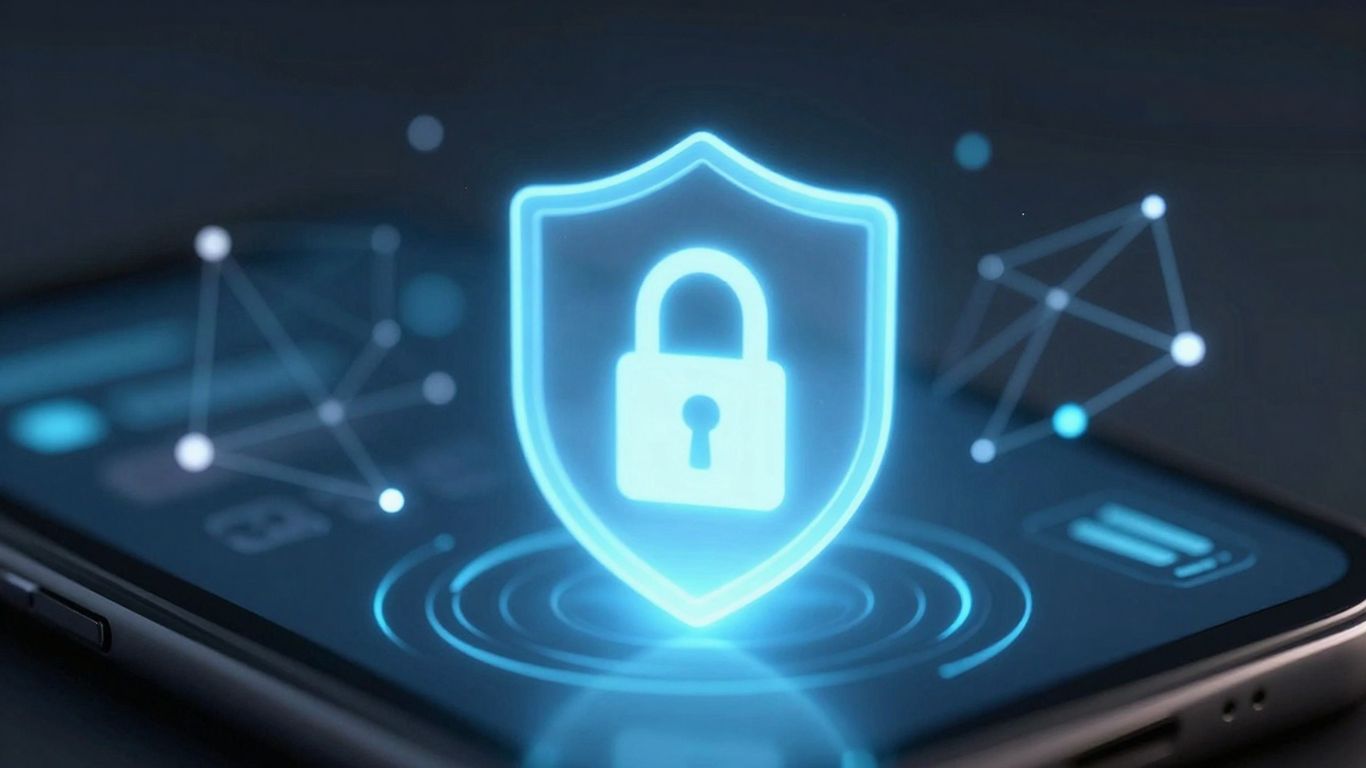[ newsletter ]
Stay ahead of Web3 threats—subscribe to our newsletter for the latest in blockchain security insights and updates.
Thank you! Your submission has been received!
Oops! Something went wrong. Please try again.
Explore essential security scanning tools and practices to protect DeFi projects from vulnerabilities and scams.





The world of decentralized finance (DeFi) is growing rapidly, but with that growth comes a host of security risks. As projects launch at a breakneck pace, the potential for scams and vulnerabilities increases. Security scanning is essential for protecting investments and ensuring the integrity of DeFi applications. This article will cover the importance of security scanning, the tools available, and best practices for keeping projects safe.

DeFi, or Decentralized Finance, has exploded in popularity, but with that growth comes increased risk. Security scanning is now a must-do, not a nice-to-have. Think of it like this: you wouldn't leave your front door unlocked, right? The same logic applies to your DeFi projects. In 2024, over $2 billion was lost due to hacks and exploits. That's a scary number, and it highlights why security can't be an afterthought. It's about protecting your investments and your users.
Ignoring security scanning is like building a house on sand. It might look good at first, but it won't stand the test of time. The DeFi space is constantly evolving, and so are the threats. Staying ahead of the curve is crucial.
There's a whole toolbox of security scanning options out there, and picking the right ones depends on your project's needs. You've got everything from automated scanners that check for common vulnerabilities to more advanced AI-powered tools that can sniff out complex issues. Then there are rug pull scanners, which are designed to detect malicious code that could drain funds. And of course, smart contract audit tools are essential for making sure your code is solid. It's a mix-and-match approach, really.
So, what are these security tools actually looking for? Well, the list is long, but some common culprits include reentrancy attacks, where a malicious contract can repeatedly call a vulnerable function before it finishes executing. Then there are integer overflows, which can cause unexpected behavior and lead to exploits. And let's not forget about timestamp dependence, where contracts rely on block timestamps, which can be manipulated by miners. A good DeFi security scanner will catch these and other potential problems.
| Vulnerability | Description
It's no secret that keeping your DeFi projects safe is a big deal. You need the right tools to spot problems before they become disasters. Let's look at some key tools that can help you keep your project secure.
AI is changing the game when it comes to security. AI-powered tools can automatically find threats without someone having to manually look for them. This means faster security checks before you put smart contracts out there. Plus, they can keep an eye on blockchain transactions all the time, looking for anything weird. It's like having a security guard that never sleeps. These tools can really help with blockchain security.
AI-driven analysis can be integrated into GitLab SAST & Solidity CI/CD pipelines, which automates security processes and ensures continuous monitoring. This reduces manual effort and improves code reliability.
Rug pulls are a major problem in the DeFi world. These scanners help you spot tokens that might be scams. They look for things like:
Using a rug pull scanner before investing can save you a lot of money and stress. It's like doing a background check before you trust someone with your wallet.
Smart contracts are the backbone of DeFi, so you need to make sure they're solid. Smart contract audit tools can automatically check your code for common problems like reentrancy bugs, integer overflows, and other vulnerabilities. These tools can save you time and money by finding issues early in the development process. Think of it as a spell checker for your code, but instead of grammar, it checks for security holes. It's important to use the best code scanner for smart contract security.

Okay, so you're thinking about getting your smart contract audited. Great! But now you're staring at two options: free tools or paid services. What's the deal? Free tools are awesome for a quick check. They can spot common issues and are perfect if you're just starting out. Think of them as a first line of defense. Paid services, on the other hand, are like bringing in the big guns. They offer a much deeper dive, combining automated scans with manual reviews by security experts.
Here's a quick rundown:
Why bother with regular audits? Well, the DeFi space moves fast. New vulnerabilities are discovered all the time. What was secure yesterday might not be secure today. Regular audits help you stay ahead of the curve. They're not just about finding problems; they're about building a more secure and reliable system. Think of it like this: you wouldn't drive a car without getting it serviced, right? Same goes for your smart contracts. Plus, regular audits can help you reduce technical debt and avoid costly patch cycles.
Regular audits aren't just a one-time thing. They're an ongoing process that helps you maintain a strong security posture. It's about continuous improvement and adapting to the ever-changing threat landscape.
So, how do audits actually make things more secure? It's all about finding those hidden bugs and vulnerabilities before the bad guys do. A good audit will look at everything from cryptographic security to transaction processing. They'll check for things like reentrancy attacks, price oracle manipulation, and other common DeFi exploits. By identifying and fixing these issues, audits help you build trust with your users and investors. Plus, a smart contract audit shows that you're serious about security, which can be a big selling point.
Here's a simple table to illustrate the impact of audits:
It's not enough to rely on just one type of security scan. A multi-layered approach is key to robust security. Think of it like this: you wouldn't just lock your front door and call it a day, right? You'd probably have a security system, maybe some cameras, and good lighting. Same idea here.
Don't put all your eggs in one basket. If one layer fails, you have others to fall back on. This redundancy is what makes a security system truly effective.
Security isn't a one-time thing; it's an ongoing process. You can't just run a scan and forget about it. The threat landscape is constantly evolving, so your security measures need to evolve with it. Continuous monitoring helps you catch issues early, before they can be exploited. Think of it as a health check for your DeFi project. You wouldn't go to the doctor once and never go again, would you? You need regular check-ups to stay healthy. Similarly, your DeFi project needs constant monitoring to stay secure. For example, you can use web3 security practices to protect your wallet.
Security should be baked into the development process from the start, not bolted on as an afterthought. This is often called "shifting left," meaning you move security considerations earlier in the development lifecycle. It's like building a house: you don't wait until the house is finished to think about the foundation. You start with a solid foundation, and then build the house on top of it. Security is the foundation of any successful DeFi project. Here's how to do it:
It's also important to choose the right smart contract audit tools for your project. This will help you identify vulnerabilities early on and prevent them from being exploited.
DeFi security scanning isn't a walk in the park. It's more like navigating a minefield blindfolded. The potential rewards are huge, but so are the risks. Let's break down some of the biggest hurdles.
The bad guys are always coming up with new tricks. What worked last year might be useless today. Staying ahead requires constant learning and adaptation. It's a never-ending game of cat and mouse. New exploits pop up all the time, and security tools need to keep pace. Think of it like this: you patch one hole, and three more appear somewhere else. It's exhausting, but necessary. For example, in 2024, over $2 billion was lost due to hacks and exploits. That's a lot of money!
Smart contracts are, well, smart, but they're also incredibly complex. Even a small coding error can lead to massive losses. Auditing these contracts is like trying to understand a foreign language written in code. It requires specialized skills and a deep understanding of blockchain technology. Plus, many projects use multiple contracts that interact with each other, increasing the attack surface. It's like building a house of cards – one wrong move, and the whole thing collapses. Using a smart contract audit tool can help prevent financial losses.
Security is important, but so is usability. No one wants to use a DeFi platform that's so secure it's impossible to use. Finding the right balance is tricky. You need to protect users' funds without making the platform too cumbersome or slow. It's a constant trade-off. Think of it like adding too many locks to your front door – it might keep burglars out, but it'll also annoy you every time you try to get inside. Automated threat detection can help with this.
It's a tough balancing act. You want to make your platform as secure as Fort Knox, but if it takes users an hour to complete a simple transaction, they're going to go somewhere else. The key is to find security measures that are effective but also transparent and user-friendly.
Here are some things to consider:
DeFi security is a constantly moving target. What works today might not work tomorrow, so staying ahead of the curve is super important. Let's look at some things that are likely to shape the future of how we keep DeFi safe.
New tech is always popping up, and some of it could be game-changing for DeFi security. For example, AI and machine learning are getting better at spotting vulnerabilities in smart contracts before they can be exploited. We're also seeing more sophisticated AI smart contract audit tools that can analyze code in ways that humans can't, offering a more thorough security assessment. Automated threat detection is becoming more common, reducing the need for constant manual oversight. Plus, things like formal verification methods are becoming more accessible, allowing for mathematical proof of code correctness.
Regulation is coming, whether we like it or not. As DeFi grows, governments are starting to pay attention and think about how to regulate it. This could mean new rules about security, audits, and compliance. Projects that take security seriously from the start will be in a much better position to adapt to these changes. It's not just about avoiding fines; it's about building trust and showing that DeFi can be a responsible part of the financial system. Aligning with regulatory compliance is becoming increasingly important for long-term success.
DeFi is all about community, and that includes security. We're seeing more and more initiatives where developers, security experts, and users work together to find and fix vulnerabilities. Bug bounties are becoming more popular, rewarding people for finding security holes. There are also community-led audit projects where multiple experts review code together. This collaborative approach can be really effective because it brings different perspectives and skills to the table. Building confidence among the users is key, and community involvement helps achieve that.
The future of DeFi security isn't just about better tools or stricter rules. It's about creating a culture of security where everyone is responsible for keeping the ecosystem safe. This means sharing knowledge, working together, and always being on the lookout for new threats.
In the DeFi space, trust is everything. People are putting their money into these projects, and they need to know it's safe. Security scanning plays a huge role in building that trust. A project that takes security seriously is much more likely to attract and retain investors. It shows you're not just throwing something together and hoping for the best. It's about demonstrating a commitment to protecting user funds and data. Think of it like this: would you invest in a company that doesn't lock its doors? Probably not. Security scanning is like locking the doors, installing an alarm system, and hiring a security guard all in one. It's a comprehensive approach to safeguarding assets and building confidence.
It's not enough to just do security scanning; you have to be open about it. Share your audit reports, explain your security measures, and be transparent about any vulnerabilities you find and how you're addressing them. This level of transparency can really set you apart. People appreciate knowing what's going on behind the scenes. It shows you're not hiding anything and that you're willing to be held accountable. Think about it, if a project is secretive about its security, it raises red flags. Transparency builds trust, and trust is essential for long-term success in DeFi. Effective cybersecurity measures are essential for mitigating risks.
Don't try to go it alone. Security is a complex field, and it's always a good idea to bring in experts. Work with reputable audit firms, security researchers, and other professionals who can help you identify and address vulnerabilities. This collaboration not only improves your security posture but also sends a strong message to investors. It shows you're willing to invest in the best possible protection and that you're taking security seriously. Plus, these experts can bring fresh perspectives and insights that you might not have considered. It's a win-win situation. Here are some benefits of working with security experts:
Security isn't a one-time thing; it's an ongoing process. The threat landscape is constantly evolving, so you need to stay vigilant and adapt your security measures accordingly. Regular security scans, audits, and collaboration with experts are essential for maintaining a strong security posture and building trust in the DeFi space. It's an investment that pays off in the long run.
In the wild world of DeFi, keeping your investments safe is more important than ever. With scams and hacks popping up all over, using tools like rug pull scanners and smart contract audits isn’t just a good idea—it’s a must. Before you put your money into any project, make sure to run a security check. These tools can help spot trouble before it hits, saving you from potential losses. Plus, for developers, getting your contracts audited can catch mistakes that could cost you big time. So, whether you’re trading or building, don’t skip on security. It’s the best way to protect your assets and keep the DeFi dream alive.
Security scanning in DeFi involves checking decentralized finance projects for weaknesses and vulnerabilities to protect against hacks and scams.
It's crucial because many DeFi projects are at risk of scams like rug pulls, and security scanning helps identify these risks before they cause financial losses.
Common tools include AI-powered scanners, rug pull detectors, and smart contract audit tools that help find vulnerabilities in the code.
Smart contract audits are reviews of the code that ensure it's safe and functions correctly, helping to prevent exploits and scams.
DeFi projects should have regular security scans, especially before launching new features or updates, to keep their code secure.
Investors can use security scanners to check projects for vulnerabilities and ensure they are investing in legitimate and safe projects.


